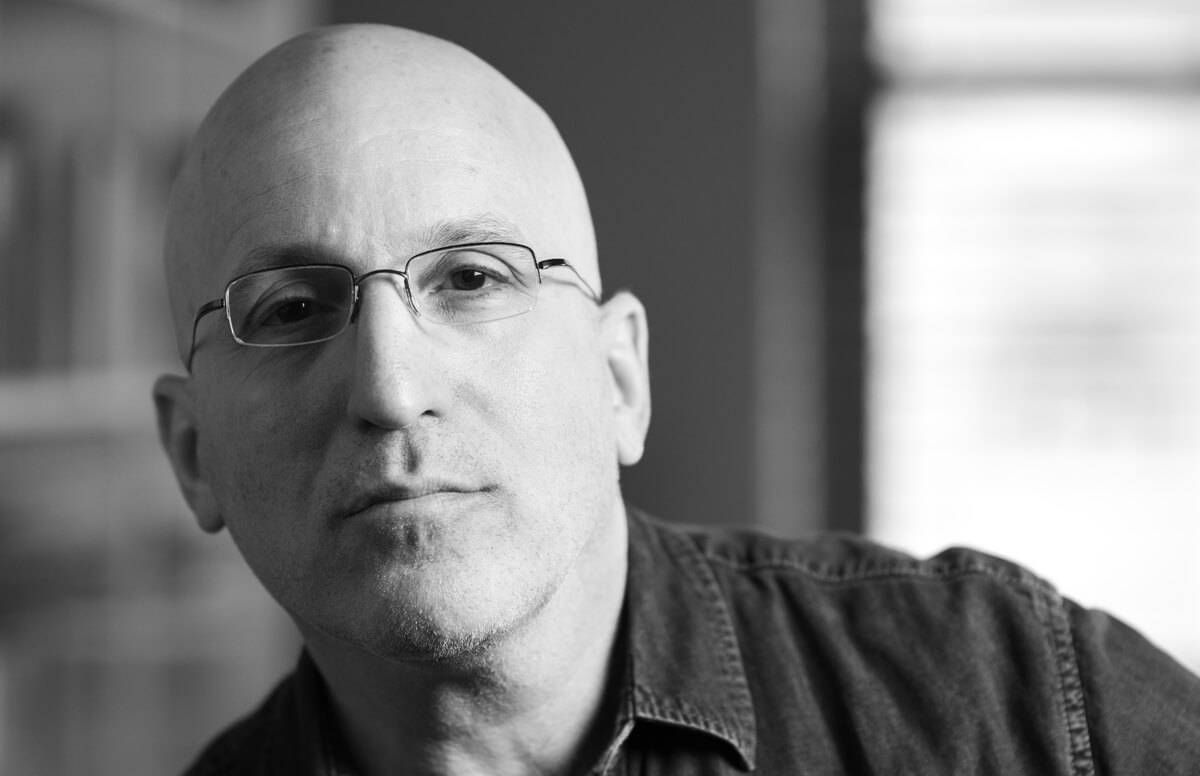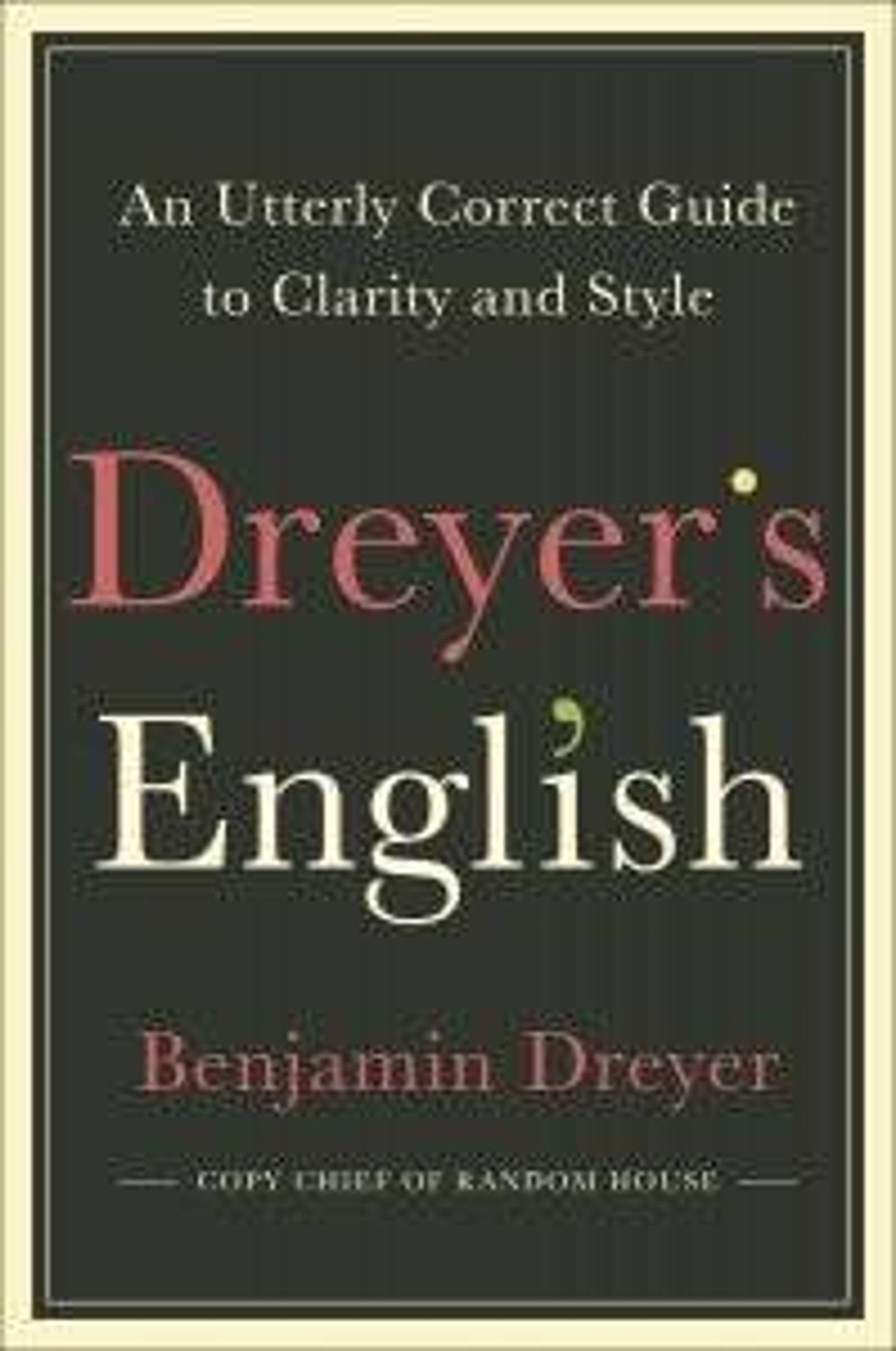Grammar Check: Q & A With Author Benjamin Dreyer
'Dreyer's English' is a bestseller, thanks in part to Twitter
In fact, Benjamin Dreyer would really prefer that I open this article quite differently.

The longtime copy chief at Random House has made a career of helping authors like E.L. Doctorow, Frank Rich and Elizabeth Strout replace such “wan intensifiers” as “in fact,” “really” and “quite” with more powerful prose.
In his first book, Dreyer’s English: An Utterly Correct Guide to Clarity and Style, Dreyer suggests ways to break free of such “throat clearers,” and enthusiastically shares a long list of writing tips gleaned from his several decades in publishing.
The volume covers common writing dilemmas in chapters on “67 Assorted Things to Do (and Not Do) with Punctuation,” “1, 2, 3 Go: The Treatment of Numbers” and “A Little Grammar Is a Dangerous Thing,” and offers advice on other hot copy topics including: The Oxford or “series” comma (Dreyer is a fan!); the passive voice (it can be acceptable) and “whether (or not)” you should pair those words (depends on the context).
Dreyer makes this deep dive into structure and syntax eminently readable, thanks to a running stream of witty “Dear reader”-style asides and references to historical, literary and non-literary figures alike — think everyone from Queen Victoria to Shirley Jackson to Donald Trump, Jr.
Perhaps the most reassuring advice for the grammatically challenged: You should worry more about the message and less about the mechanics.
“Good writing is not necessarily writing that adheres to rules, unless the rules are useful for clarity,” Dreyer tells Next Avenue. “We have certain rules of grammar by consensus and by tradition because we all agree this is the best way to phrase something. If the rules are arbitrary or don’t make a difference one way or another, they are rules that can be discarded.”
Dreyer talks about being kind to your writer self, his worst habits as a writer and how Twitter helped him find his voice as an author.
Next Avenue: If you’re not born with an ear for grammar, can you learn to hear the difference between good and bad writing?
Benjamin Dreyer: Not everybody is a natural writer and not everybody is naturally a good writer. One does not by the right of being a native English speaker become a good writer. I think people whonwant to be good writers need to read a lot and read good writing. They need to look at it with an analytic eye.
It does help to learn the rules and understand them. Once you internalize them, you can let them go. They’re not the primary tool for writing; the primary tool is your desire to write.

You make the point that copy editing goes beyond spell check and proofreading. But it seems like everyone could use a copy editor or at least have that mentality with their writing.
I always type with spell check on because it’s helpful. I don’t use grammar software, because that’s my job. I think that you should write and write full out — and not do too much looking over your own shoulder with your own writing. Then you can look at it with a more critical eye. It’s important not to mix up the editorial process and the critical process, because they’re not the same thing.
What are some of the bad habits you find yourself repeating?
I know I write parenthetical comments more than is advisable, and I know I use longer, twisty sentences more than I need to use. I did go through the book and search for words they say people shouldn’t use too much. I did banish the word, “actually,” other than the discussion of the use of the word.
During the copy editing of my own book, I was having a copy editor point out things to me that I wasn’t necessarily seeing. You can only see your own writing so well. If the writing is moving towards publication, you have to get another set of eyes on it.
Given that grammar might seem dull to some and intimidating to others, how did you find the right tone for your book?
I wanted to write a book that was going to sit on shelves with other good books; what did I have to say that was new and fresh and helpful? Trying to figure out the voice was its own process. I realized the voice I had been cultivating by hanging around on Twitter as your friendly neighborhood copy chief was the voice — succinct, punchy, funny, nice and inviting.
If you’re going to tweet, you have to amuse them. If not, they’ll go follow someone else. Then it was a matter of translating the Twitter voice onto the page.
One of the things that pleased me is that people who know me would read the book, like my own mother, and their immediate response was ‘this sounds just like you.’ People who hadn’t met me said — you and the book, it’s the same thing.
How do you suggest writers balance wanting to sound current through buzz words without seeming out of their element?
You want to reach an audience, and you want to reach a broad audience, but you have to stick to the authenticity of the way you express yourself. It’s better to stick to your own language than to affect other people’s language, especially if you’re not sure what it means.
I sometimes jokingly affect a more useful set of phrases and grammar than might be appropriate for someone who’s over 60 years old. But I think I know what I’m doing, and I think it works.
You had writer’s block in your 20s (when you did theater and film reviews and published some short stories) but weren’t ready to write a book until your 60s. What made the difference for you?
When I decided many years later that I wanted to try to write again, it wasn’t necessarily the easiest thing on earth. But I was 30-odd years older when I walked away and was able to persuade myself to do this — and it wasn’t painful. This time, it worked. I don’t know how to translate that into advice for other people, but to say: try to be kinder to yourself.
If you’re going to write, don’t sit down with the expectation that your first draft is going to be Hemingway’s sixth draft.

